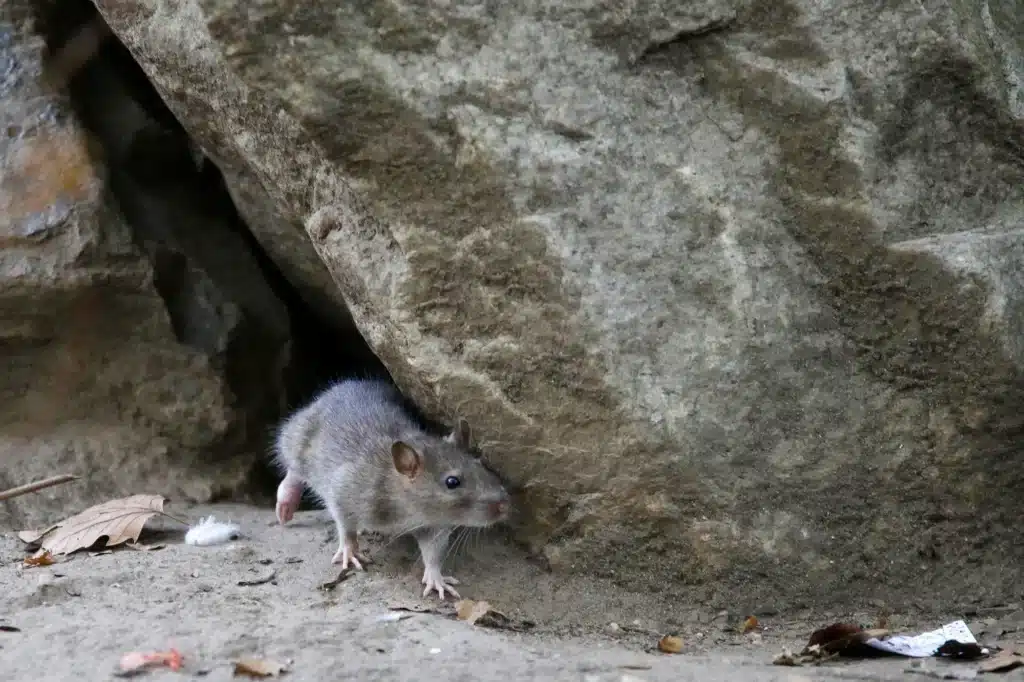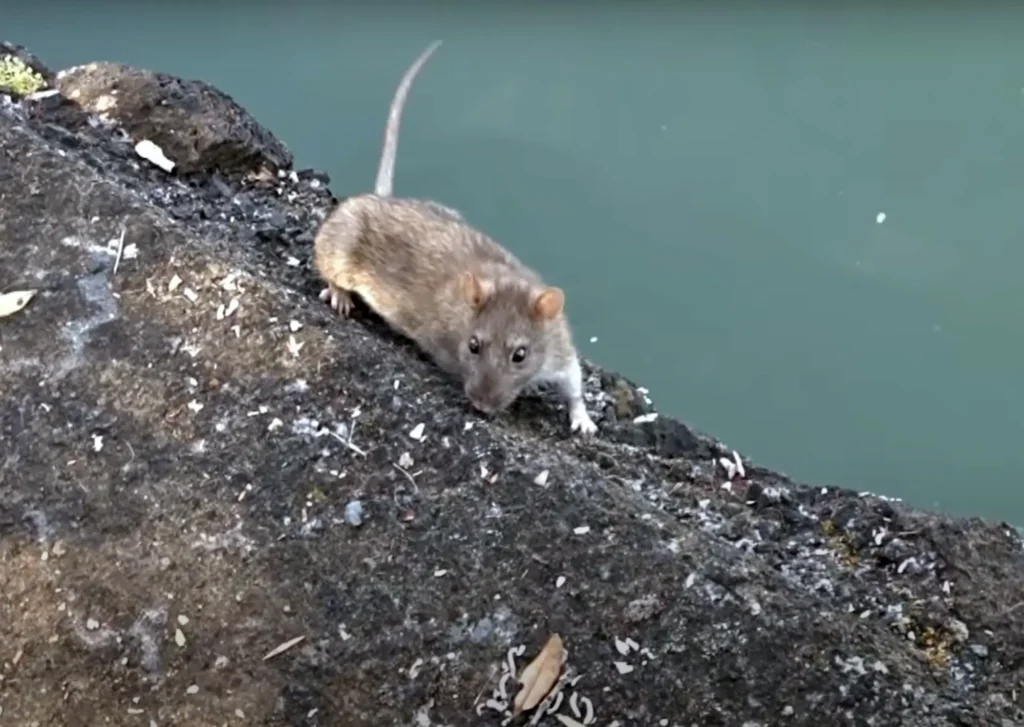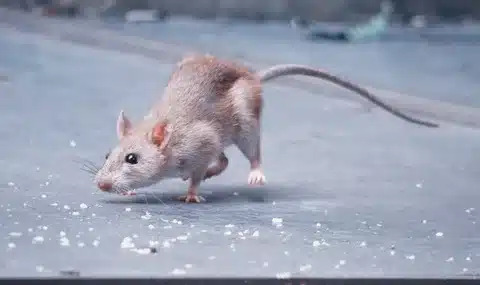Introduction
What Scent Will Keep Rats Away: The persistent presence of rats can be a troublesome and unsanitary issue in homes, businesses, and agricultural settings. Not only do these rodents pose health risks and structural damage, but their mere presence can be unsettling. In the quest to deter rats, have various methods, one of which is the utilization of scents. While rats possess a highly developed sense of smell, it is possible to leverage this trait to our advantage. This article delves into the intriguing realm of scents that have been touted as potential deterrents for rats.
Rats, known for their adaptability and resourcefulness, have long been a challenge for those seeking to repel them. Traditional methods such as traps and poisons have their drawbacks, and an increasing awareness of the environmental and ethical concerns surrounding these approaches has prompted a search for more humane and sustainable solutions. This quest has led to the natural scents and essential oils that might serve as effective deterrents.
The notion of using scents to keep rats away may seem counterintuitive at first. After all, rats are known to thrive in various environments, including those with a variety of odors. That not all scents are created equal, and some have demonstrated an ability to disrupt rat behavior, making areas inhospitable to them. The science behind this phenomenon is fascinating, as it involves the intricate interplay between a rat’s highly developed olfactory system and its survival instincts.

What smell makes rats leave?
Due to their highly developed smell, mice and rats are highly susceptible to certain smells. Cotton balls soaked with peppermint oil, beaver oil, and citronella oil, could migrate them outside the home or less pungent environments around the property.
Peppermint Oil: The strong and pungent scent of peppermint oil is known to be offensive to rats. Soaking cotton balls in peppermint oil and strategically placing them in areas where rats are active can help discourage their presence. The rats tend to find the scent overwhelming and may seek out alternative locations.
Beaver Oil: Beaver oil, derived from the castor glands of beavers, emits a powerful scent that can deter rats. It is often used in commercial repellent products. Placing beaver oil-soaked cotton balls or using castor oil-based products in rat-prone areas can be an effective way to repel them.
Citronella Oil: Citronella oil, known for its use in mosquito repellents, can also be effective against rats. The strong citrusy aroma of citronella can be unpleasant for rodents, prompting them to avoid areas where the scent is present.
While these scents may help deter rats temporarily, they are not foolproof solutions for complete rat control. Rats are highly adaptable creatures, and their response to scents can vary. Using scents as a standalone rat control method is often most effective when combined with other pest management strategies, such as sealing entry points, maintaining cleanliness, and using traps or baits.
What is the best natural rat repellent?
Some of the most effective natural rat deterrents include crushed pepper, peppermint oil, cayenne pepper, black pepper, cloves, citronella, eucalyptus, and chili flakes. These ingredients can be used separately or combined to create a rat-repellent spray.
Peppermint Oil: Peppermint oil has a strong, pleasant scent for humans but is highly offensive to rats due to their acute sense of smell. When applied strategically, it can create an inhospitable environment for rats, causing them to seek out alternative locations.
To use peppermint oil as a rat repellent
- Soak cotton balls in peppermint oil and place them in areas where rats are active or likely to enter.
- You can also dilute peppermint oil with water and spray it around rat-prone areas or entry points.
- Refresh the application regularly, as the scent may dissipate over time.
While peppermint oil is a popular natural rat repellent, it’s worth noting that rats may become accustomed to the scent over time, so it may not be a permanent solution. To enhance its effectiveness, consider combining it with other natural repellents like cayenne pepper, black pepper, or cloves.
What smells attract rats?
Odors and smells that come from pet waste, pet food, garbage containers, barbecue grills, birdfeeders, and even from unharvested fruit and nuts from plants can attract rats and mice. Good sanitation habits can effectively improve the prevention of attracting rodents in your yard.
Food Odors: Rats have a keen sense of smell and can be lured by the scent of food. This includes the smell of pet food, leftovers in garbage containers, discarded food scraps, and even food spills or crumbs in and around the home.
Pet Waste: The odor of pet waste, such as dog or cat feces, can attract rats. It provides both a potential food source and a place to burrow.
Garbage: Rotting or decomposing organic matter in garbage cans can emit strong odors that rats find appealing. Properly sealing and securing garbage containers can help prevent rat attraction.
Barbecue Grills: Residue and food scraps left on barbecue grills can emit food odors that attract rats. Cleaning and maintaining grills can help mitigate this attraction.
Birdfeeders: Birdseed and spilled bird seed from bird feeders can be a food source for rats, as they are omnivorous and opportunistic feeders. Keeping bird feeders clean and minimizing spillage can reduce the risk of attracting rodents.
Unharvested Fruit and Nuts: Rats are drawn to the scent of ripe or fallen fruit and nuts from trees and bushes. Regularly harvesting or disposing of these items can help deter rats from your yard.
What smell do rats fear?
Peppermint oil is an effective method for keeping mice and rats away. These rodents cannot stand this oil’s robust and minty smell, so a few drops around your home can go a long way in keeping them away.
Peppermint oil is indeed one of the scents that rats and mice are known to find unpleasant and may deter them from certain areas. The strong and minty aroma of peppermint oil can overwhelm their sensitive olfactory systems, making the environment less attractive to them.
Cotton Balls Soaked in Peppermint Oil: Soak cotton balls in peppermint oil and place them in areas where you suspect rat activity or entry points. Refresh the cotton balls regularly, as the scent may fade over time.
Peppermint Oil Spray: Dilute peppermint oil with water and use it to spray rat-prone areas or areas where you want to prevent rat entry. This can create a peppermint-scented barrier that rats may avoid.
Peppermint Plants: Growing peppermint plants around your property can also help emit a continuous peppermint scent, potentially deterring rats.
Do rats hate the smell of bleach?
The pungent odor of bleach will deter rats, but if you want to entice them and poison them with bleach, mix a tablespoon of bleach with two tablespoons of peanut butter.
While the pungent odor of bleach may deter rats due to its strong chemical smell, it’s essential to clarify that using bleach as a means to poison or harm rats is not a humane or recommended method of pest control. Intentionally poisoning rats with bleach or any toxic substance can lead to inhumane suffering and may pose risks to other animals and the environment.
Using bleach in this manner is not only inhumane but also potentially illegal in many jurisdictions. It is crucial to prioritize ethical and humane methods for dealing with rat infestations, such as trapping and removing them or seeking assistance from professional pest control services.
If you have concerns about rats in your home or property, it’s best to explore alternative, humane, and effective rat control methods that do not harm the animals and adhere to local laws and regulations. Consulting with a pest control professional or wildlife expert can provide guidance on the most appropriate and ethical solutions for your specific situation.
Can rats sense humans?
They’ll be able to flee before they’re spotted. They’ll be able to detect the scent of large birds, cats, and even humans when it matters the most.
Sense of Smell: Rats have an excellent sense of smell, and they can detect the scent of humans and other animals from a considerable distance. This sense of smell helps them identify potential sources of food, predators, and even changes in their environment. Rats can pick up on the odor of humans, which may include body odors, perfumes, and other scents associated with people.
Sense of Hearing: Rats also have a sharp sense of hearing. They can detect sounds in the ultrasonic range, which is beyond the range of human hearing. This acute hearing allows them to hear sounds and movements that may signal the presence of humans, such as footsteps, voices, or other noises.
Tactile Sensitivity: Rats have sensitive whiskers and a well-developed tactile sense, which helps them navigate their environment and detect physical vibrations. They can feel vibrations caused by human movements, footsteps, or other disturbances.
When rats sense the presence of humans or other potential threats, they are often quick to respond by fleeing to safety. Rats are known for their evasive and cautious behavior, and their ability to detect the signs of danger contributes to their survival in various environments.
How do I keep rats away forever?
8 Steps to Take to Keep Rats Away and Out of Your House
- Fill holes, cracks and gaps.
- Don’t feed them.
- Remove their habitat.
- Trim trees, shrubs and limbs back four feet from your home.
- Set traps inside.
- Repel Rats
- Use baits and poisons outside.
- Check your neighborhood.
Seal Entry Points: Inspect your home for holes, cracks, gaps, and openings that rats could use to enter. Seal these entry points with materials like steel wool, caulk, or metal mesh to prevent rats from getting inside.
Remove Food Sources: Rats are attracted to food. Securely store food in airtight containers, clean up food spills promptly, and avoid leaving pet food out overnight. Also, ensure that outdoor garbage cans are tightly sealed.
Trim Vegetation: Trim trees, shrubs, and bushes at least four feet away from your home. This prevents rats from using overhanging branches as bridges to access your roof or attic.
Set Traps: Use rat traps, such as snap traps or live traps, indoors to catch any rats that may have found their way inside. Place traps in areas where rat activity has been observed.
Repel Rats: Consider using natural rat repellents like peppermint oil or commercially available rat repellent products in areas where you want to discourage rat activity.
Use Baits and Poisons: If necessary, use rat baits and poisons, but do so with caution. Follow the manufacturer’s instructions carefully and place baits in areas where rats are likely to travel. Keep in mind that poisons should be used as a last resort and with careful consideration of the potential risks.
Check Your Neighborhood: Rats can travel from neighboring properties, so communicate with neighbors about rodent control efforts. If you notice rat activity in your area, it’s important to address it collectively to prevent reinfestation.
Regular Maintenance: Continuously monitor and maintain these preventive measures to ensure they remain effective over time.
Can rats smell food from a distance?
Rats have an incredibly strong sense of smell. Rats can smell food from a distance, and they are known for following their noses to a meal. Rats have about 26,000 olfactory sensory cells, which is more than any other mammalian species.
Rats have an extraordinarily strong sense of smell, and they can detect the scent of food from a considerable distance. Their acute sense of smell is one of their most developed sensory abilities and plays a crucial role in their survival. Rats are highly skilled at locating and tracking down potential sources of food, even if they are some distance away.
Rats possess a large number of olfactory sensory cells, as you mentioned, which allows them to detect a wide range of odors. Their ability to follow their noses to a meal is a key factor in their foraging behavior, making them adept at finding food in various environments.
This keen sense of smell also makes it essential to store food securely and maintain good sanitation practices to reduce the risk of attracting rats to your home or property. Rats can quickly locate and access food sources if they are not properly sealed or stored.

Conclusion
In the pursuit of effective rat deterrence, the utilization of scents has revealed promising insights into more humane and sustainable solutions. While rats are notoriously adaptable creatures, it is clear that not all scents are equal in their ability to repel these pests. We have uncovered a selection of scents and essential oils that have demonstrated the potential to disrupt rat behavior and create inhospitable environments for them.
From the pungent aroma of peppermint to the earthy notes of cedarwood, these scents have proven their worth in deterring rats, often relying on the rodents’ keen sense of smell and their aversion to certain odors. The science behind these repellents is both intriguing and promising, offering a more humane alternative to traditional trapping and poisoning methods.
It is crucial to approach scent-based rat away deterrence with a degree of caution and practicality. While these scents can be effective, they should be seen as part of a broader pest control strategy. The safety of these scents for humans and pets, as well as their ease of application and sustainability, must be considered.





No Comments